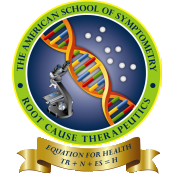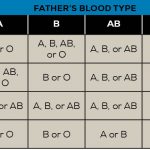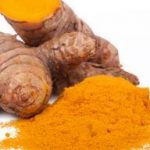Wine Drinking And The Danger To Memory
Dr. Maxwell Nartey
Professor of Symptometric Science, American School of Symptometry, NFP
World Center for Health Education and Scientific Enlightenment
All wines have a large amount of acetaldehyde. Every fruit has a certain amount of acetaldehyde, but the chemistry of fermentation allows acetaldehyde, and many fruit chemicals and sugars, oxygen, carbon, hydrogen, yeast, and acids to comingle. It is the comingling process that produces ethanol and carbon dioxide, as a byproduct. Alcohol denatures enzymes.
If wine is a good heart tonic as the wine marketers would want people to believe, why does wine drinking end up affecting memory? Wine drinkers have more memory problems than people who do not drink wine. Why is that? The answer is, they suffer from the consequences of brain neglect.
The heart cannot function independently of the brain because they are interconnected, integrated, interrelated, and interdependent. If wine is a good heart tonic, the question is, is it also a brain tonic? Let us find out.
The heart is nothing but muscle. There must be eight muscle proteins in every cardiac muscle. These eight muscle proteins are titin, fibrillin, actin, myosin, elastin, dystrophin, troponin, and tropomyosin.
How does wine maximize the function of each of these muscle proteins so that the muscle proteins will supply more power, strength, pressure, and force to the heart? It turns out that initially, this is what happens, and it is acetaldehyde that releases this force, power, strength, and pressure to the cardiac muscles. On this score, the wine marketers are right in stating that wine is a heart tonic. In the long run, wine drinking begins to hurt not only the heart. It also hurts the brain.
Is wine therapeutic? No, it is not because it cannot cure palpitation, atrial or ventricular fibrillation, ectopic foci, intermittent heartbeat, atrial flutter, ventricular flutter, and irregular heartbeat. Do you know why? The reason is these anomalies are not caused by a weakening heart. They are caused by a jammed SA node, the natural pacemaker that is in the right atrium. This explains why wine drinkers sometimes experience intermittent heartbeat, atrial fibrillation, and other anomalies associated with rhythm. Since this is the case, wine cannot be a heart tonic in the long run.
Why is it that wine drinkers, and people who occasionally or routinely drink liquor, suffer from memory loss, and such memory loss culminates in dementia or full-blown Alzheimer’s disease? Here is the answer.
The neurotransmitter that makes our memory function is called acetylcholine. An enzyme must be manufactured to produce it, and this enzyme is called TPP (thiamine pyrophosphate).
However, before TPP goes to work, old acetylcholine must first be degraded and cleared out of the way. The enzyme that degrades old acetylcholine so that new acetylcholine can replace old acetylcholine is called acetylcholinesterase.
There is alcohol in wine, and in truth, the percentage of alcohol in wine is irrelevant. The alcohol in wine will denature or damage TPP and acetylcholinesterase. Since without TPP and acetylcholinesterase, ribosomal RNA will never produce fresh acetylcholine, the wine drinker will have nothing but old and decrepit acetylcholine in their brain.
Old acetylcholine never improves memory function. It allows memory and cognitive function to decline slowly but surely. As memory declines so will libido, adrenal function, and the limbic system.
The limbic system regulates our emotions while norepinephrine and serotonin regulate our temper and reaction to circumstances.
As the level of serotonin declines, the person becomes more impatient, intolerant, and snappish. As the level of norepinephrine declines, the person becomes edgier and unpredictable.
People have never been told the total truth about wine drinking. Now is the time for the total truth about wine drinking to be told.
Life is all about making choices. If people want to drink wine, that is their prerogative but my point is, reverse the damage that is being done to the food enzymes and ancillary enzymes after drinking wine. If the wine drinkers cannot find a Doctor of Symptometry to reverse this damage, they will suffer the consequences.
I am aware that wine is big business, and that business interests must be protected because the employees that work in these wineries pay taxes. The local and federal governments need these tax revenues. However, I will not promote business at the expense of mental and emotional health. I will always do both.
If the winemakers can find money to conduct research on the kinds of grapes that produce high-quality wine, I am confident that they can also find money to hire creative researchers to formulate a reverse technique. It is this reverse technique that will prevent enzymes from being denatured.
The wine industry is talking about wine. I am not talking about wine. I am talking about enzymes and mental health. Nothing in our body will be produced without enzymes. Let this fact be known by all.
© Copyright 2022, The American School of Symptometry, NFP. No part of this publication may be reproduced or transmitted in any form or by any means, electronic or mechanical, including photocopying, recording, or by any information storage and retrieval system without the written permission of The American School of Symptometry, NFP. Library of Congress copyright number Txu 1-621-370, Washington D.C.

 Previous Post
Previous Post Next Post
Next Post

